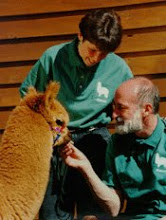
OK, some of these are things we really DO know but sort of forgot.
Like the compost pile. We surely know that the best place for all those barn sweepings and pen cleanings is down wind and out of sight. So why didn't we do it that way? We have no good excuse...the pile just sort of started itself where it was most convenient and now, one year into the new ranch location, we are faced with renting big earth moving equipment and moving it to where it should have been all along.
Note to Self: don't forget what you already know or it will cost you in $$ and time!
Something we did not know, and did not factor into our ranch construction equation was how hard it is to get anything built in the rural parts of the world. With few contractors, just getting your project onto their schedule takes months. Then almost all building supplies end up needing to be ordered, and take weeks to arrive. And just about the time you get it all aligned, with the contractors scheduled and the supplies on hand, the bad weather sets in to delay everything. Which is why it has taken a year to build a simple two-car garage addition to our barn!
Something else we have learned the hard way is that while some things are cheaper when you get outside the more populated areas of the country, other things are not. Food, for example. Even though we live in farm country, the food prices at the one grocery store in town are astoundingly high. Construction materials are also not any cheaper, and, if they have to be ordered, likely higher in cost. Oh, yes...then there is the shipping you'll pay on all those Internet purchases! True, you can get almost everything off the Internet these days, but you'll pay a bunch for the opportunity, in shipping and delivery fees.
So what's the good news? We live in a fabulous area, with views that take your breath away any time of year. We have clean water and air, and enough land to grow our own hay and let the alpacas play in the pastures.
Our neighbors are The Best, always willing to help us out at the drop of a hat. And we are living the dream...even if parts of it are a little more complicated or expensive than we expected. Still, how do you put a price on freedom, peace and a country life-style? Priceless, even if we do have to give up a weekend to move the compost pile!


